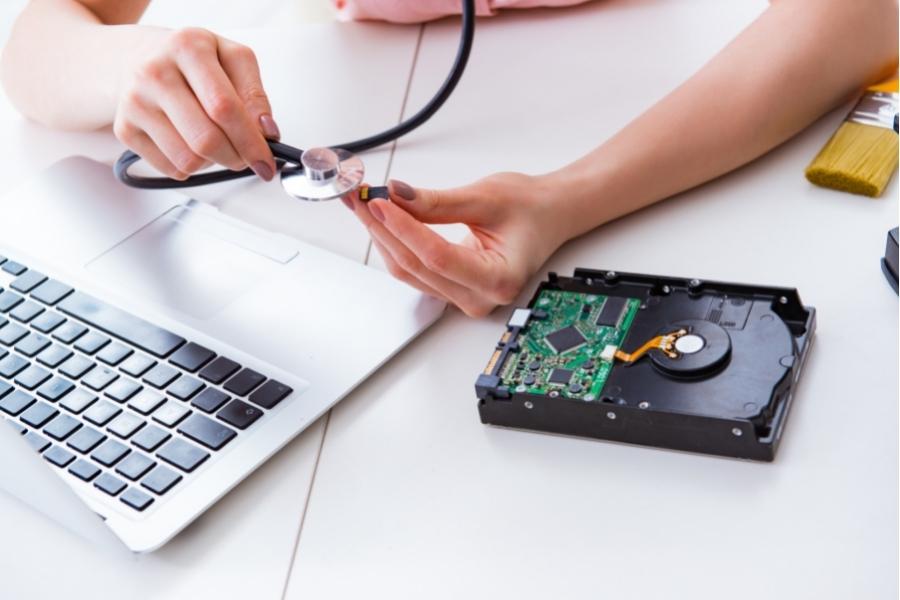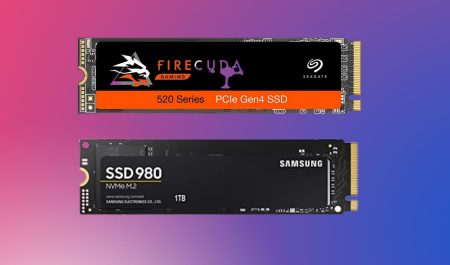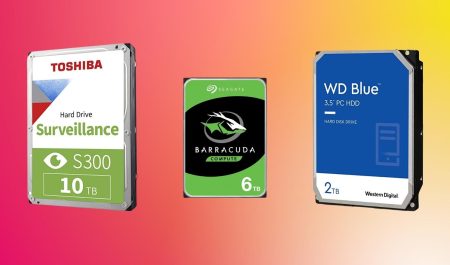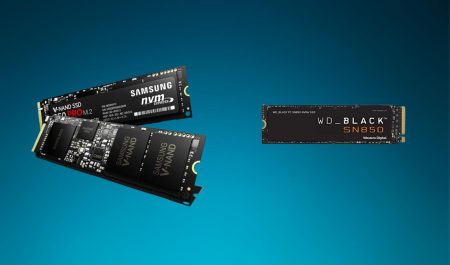If you’re in the market for a new hard drive, there are things to know when buying a hard drive for your PC, laptop, PS5, or NAS. I have gathered some of the most important tips you should know about HDDs/
- First, make sure to compare prices online. There are often great deals to be had by comparing different brands and models.
- Second, take into account your storage needs. If you’re only looking for a small increase in space, go with a smaller capacity drive instead of a larger one that will only fill up quickly.
- Third, consider your usage habits. If you use your computer mostly for work or entertainment purposes, invest in a more durable drive that can handle heavier loads.
- Finally, consider where you’ll be storing your new hard drive. A hard drive that’s located close to your computer will usually be faster than one that’s located in another room.
Your HDD RPM Matters For Speed (Write/Read)
Hard drive RPM is the number of rotations per minute. The higher the RPM, the faster your hard drive will spin and the faster it will read and write data. RPM can impact gaming performance in a few different ways. It is the rate of the spinning disk that makes it faster to read and write your data. The faster your hard drive spins, the faster it will be able to read and write data to your computer. This can allow for faster loading times in games, but it can also cause your system to run hot.
Cache Memory Of Hard Disk
Hard drive cache is one of the most important and frequently used features of modern hard drives. The cache is a portion of the data held in the hard drive usually a few megabytes that the hard drive uses to keep track of which files have been accessed recently. When considering the best HDD, go for a heavier cache disk, it allows faster boot times, is more reliable, and last but not least it can help visual ram and aid as secondary storage for your active RAM files.
Hard Drives Have Two Sizes (2.5 Inches And 3.5 Inches)
Hard drives come in a variety of sizes and capacities. The size of the hard drive is crucial because it dictates how much data you can store on your computer, as well as how fast that data can be read and written. Hard drive sizes can be confusing, especially if you’re not familiar with the abbreviations used. The most common sizes are 2.5″ and 3.5″ inch drives.
They both come in various capacities, from 40GB to 12TB. Here’s a quick guide to help you figure out what size drive is right for your needs: If you only plan on storing a small amount of data, go for a smaller drive like the 2.5″ variety. They’re cheaper and lighter, making them easier to carry around. If you want space to store a lot of photos or videos, go for a 3.5″ drive. They’re bigger and heavier, but they offer more storage space than their smaller counterparts.
HDDs Have A Low Failure Rate Than SSDs
Hard drive failure rates vary greatly from one manufacturer to another, but on average a hard drive will fail within 5 years. A study by the University of California, San Diego found that the average hard drive failed after 3 years. The causes of hard drive failures can be physical or functional. Physical failures can include cracks in the drive’s casing or head, while functional failures can be due to problems with the firmware or operating system.
Are All Hard Drives Compatible With Any PC?

This is a question that often comes up when someone is building a new gaming PC, or upgrading an old one. The answer is not as straightforward as you might think. In general, the answer is yes – almost all of the hard drives are compatible with any PC you build. However, there are a few things to keep in mind such as the form factor of the hard drive and its connection interface.
Before we move to form factor types, here are our quick suggestions for desktop and laptop hard drive connections:
- First of all, you need to make sure that your desktop PC has the correct type of drive connector that matches the interface on your motherboard, which is usually a SATA interface or IDE.
- Secondly, most laptops usually have either SATA or PATA connectors, which can be confirmed by looking at the motherboard manual or online spec sheet.
Different Form Factor Of Hard Drives Have Different Usage:
There are two HDD form factors, and each one is compatible with different types of PCs, or at the very least requires some tools to make them compatible with different systems.
- 3.5-inch HDDs: For Desktop PCs the common form factor is 3.5-inch Hard Drives
- 3.5-inch HDDs: Laptops and portable storage options rely on 2.5-inch Hard Drives
2.5 Inches Hard Drives:
Although the dimensions of the two types of hard drives differ, you can use small 2.5 inches HHDs with your desktop PC using the conversation hard drive bays or cases with the same SATA connection.
3.5 Inches Hard Drives:
However, Network Attached Storage (NAS) or servers typically use standard size 3.5-inch HDDs because they operate continuously and generate more heat, where small form factor hard drives are vulnerable.




